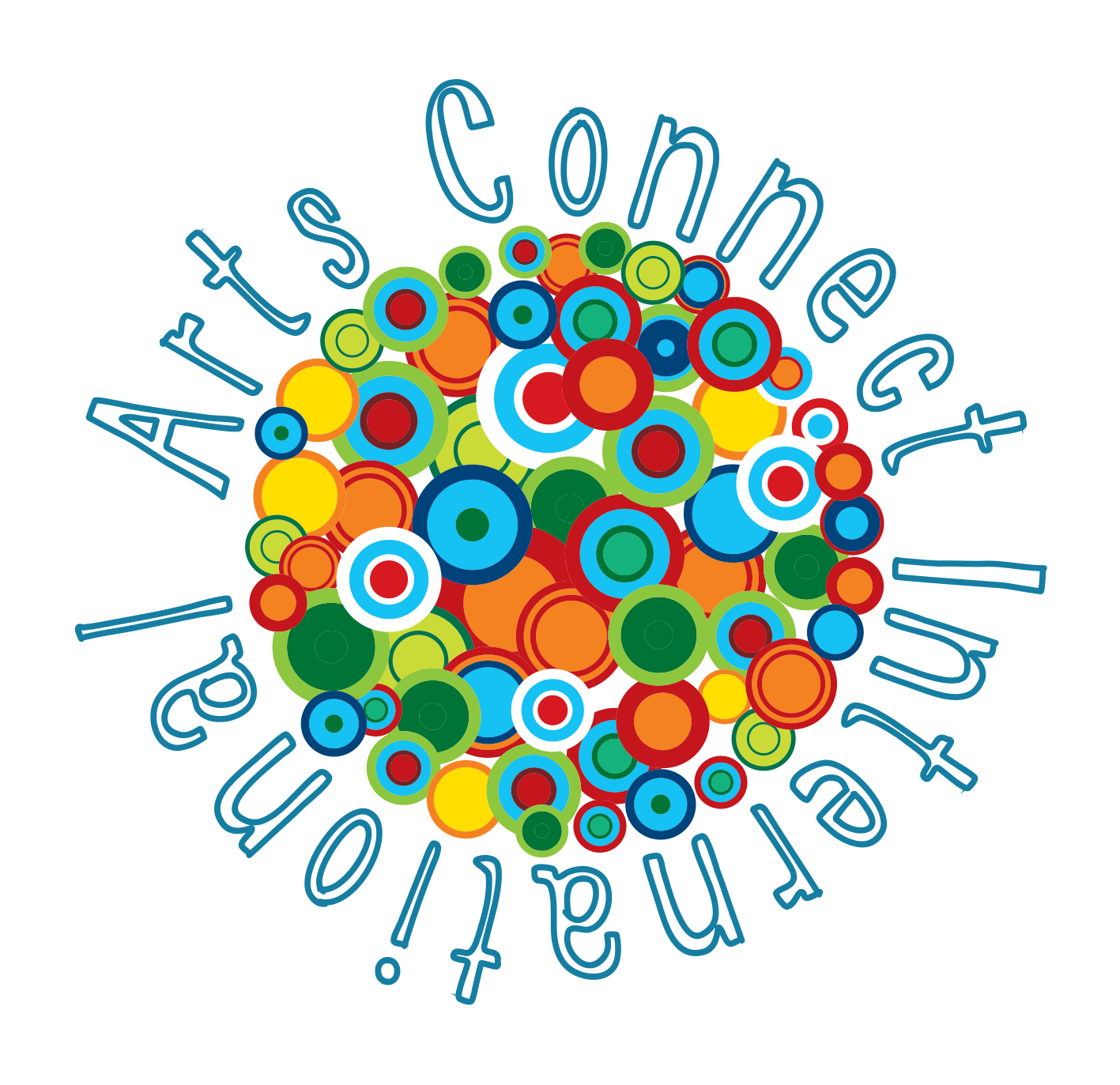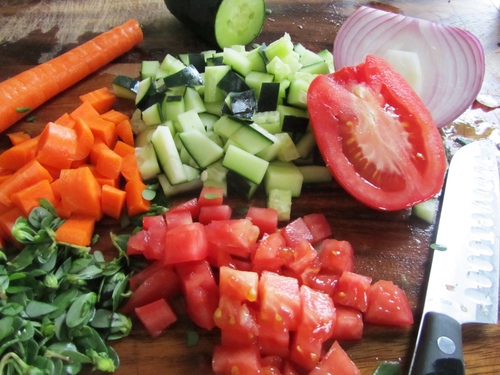Background on our Guest Blogger: Laura Bender is passionate about improving the quality of care for people with advanced cancer. As a palliative care advocate, a practicing yogi, and dedicated Unitarian Universalist, Laura is fueled by her belief that a more just, equitable, and compassionate world is possible.
Blog Title: My Priority to Chop Vegetables
Yesterday I prioritized chopping vegetables over having a difficult conversation. For me, at this point in my life, a “difficult conversation” is discussing my love life.
At 7:30pm, I decided I needed to focus on cutting off the ends of zucchini and slicing mushrooms. This focus on preparing dinner trumped the continuation of a heart-to-heart conversation with my dear friend about perspectives on relationships.
My prioritized goal, in the moment, was to make a delicious meal. I decided I could discuss what I am looking for in a “significant other” at a later time.
“Desires dictate our priorities, priorities shape our choices, and choices determine our actions.”
-Dallin H. Oaks
I recognize that the ranking of my priorities, day to day, hour to hour, is related to how much time I think I have to dedicate to each one. “How we seek to spend our time may depend on how much time we perceive ourselves to have,” says Atul Gawandein his book, Being Mortal. In the case of last evening, I believed that I’d have the choice to continue conversation after preparing dinner.
I started to wonder, however, if my priority of chopping vegetables would have ranked lower on my list had I had a more finite time to be with my friend. Under what circumstances would I continue to choose ‘chopping vegetables’ over ‘quality conversation with a friend’?
At what point is a good conversation more important to me than diced tomatoes?
I may have chosen differently if I knew I had had limited time. “When we are more aware of the finitude of life,” describes Gawande of research by Stanford professor,Laura Carstensen, “we shift our care to the intimacy of relationship and being connected to loved ones…”
These questions I ask myself about priorities bring to my mind the people with advanced cancer who are under our care at Penn Medicine. Compared to people who are not in an obvious life-limiting situation, people with advanced illnesses may have a greater sense of awareness about what they prioritize. They may have a greater sense of urgency to make choices that exemplify how they want to contribute to the world or how they want to be remembered.
While we know that we are all mortal and our bodies will at some point cease to be pumped with life energy, we have a lot to learn from people who live this mortal reality with greater awareness.
Here are four major things that I have learned from people with advanced cancer:
1) Many people with cancer have taught me how to recognize my life priorities with more acuity.
2) They have taught me the importance of sharing these priorities with other people.
3) I continue to learn how to listen to the priorities of others and practice ways to respect what people choose as important in their lives.
4) I have learned that no matter what a person chooses to prioritize in life, whether you consider them big or small decisions, and whether or not it is a life or death situation, it is of greatest importance to respect these choices. Some people may even choose to not make choices, and this too needs to be respected.
“When you have to make a choice and don’t make it, that is in itself a choice.”
-William James
In Being Mortal, Atul Gawande discusses how “people with serious illness have priorities besides simply prolonging their lives.” My work in palliative medicine, specifically with people living with cancer, has me asking these two questions on a regular basis:
1) How can we better identify our priorities and choices for ourselves?
2) How can we better support the priorities and choices of others?
As a starting point, one answer I have to both of these questions is to place our attention to what is happening in our lives. Grow our understanding of what is going on. Build a nuanced language around articulating what we currently are doing with our lives.
Practice this with detailed curiosity.
I am thankful for the many people before me, in and outside of the healthcare field, who have been dedicated to the mission of treating all people with dignity and inherent worth. Many leaders and followers have shaped the fact that many of us, thankfully, have opportunities of choice to live the lives we want, fulfilling our priorities.
We must focus on the people who do not have the availability of choice to fulfill their life priorities. I am dedicated to widening these opportunities for a more just society.
“We eat fruit from trees we did not plant. We drink water from wells we did not dig. This is as it should be as long as we plant and dig for those who come after.”
After chopping vegetables last night, I recognized another, albeit small, choice for myself: to prioritize watching the Daily Show or to return to the discussion of my desires and fears of loving another person. I was pleased with what I chose to prioritize at that moment.
May we all grow our awareness of our priorities. May we all be so free to have the opportunity of choice for big and small decisions. May we all have the ability to safely express our choices and be respected for whatever we choose for our lives. Whether we choose to chop vegetables, laugh at the Daily Show, or have meaningful conversations, may we be greeted with open hearts.
May I continue to learn from people with advanced cancer who teach me about the many opportunities we have to choose to listen, to share, to respect and support others, and ultimately, to love.
“You decide your priorities and you make your choices. I’d decided long ago that any cake I had would be eaten.”
-Donald E. Westlake
~~~~~~~~~~~~~~~~~~
Call to action: Do you have important information around cancer that you want to share with a wider audience? Do you or a loved one currently live and/or struggle with cancer related issues? Do you work in research, advocacy, prevention, treatment or care? We want to hear from YOU! Write to us today: 7dresses@artsconnectinternational.org to become a featured blog writer.
Another way to get involved is to wear the color of the day in solidarity. Take a picture of yourself in the color of the day and Tweet it @ArtsConnectInt, tag us on Instagram @ArtsConnectInt, or send it to us on Facebook.
About 7 Dresses 4 Health (7D4H): 7D4H is a year-long arts and health education campaign lead by visual artist, Marian Brown, in conjunction with Arts Connect International. The objective of the campaign is to promote inclusive community practices through adDRESSing health artistically and collaboratively. To learn more about the genesis of the project, read Marian’s New Year Blog.
About today's look: All of the dresses for 7 Dresses 4 Health were designed and sewn by Kim's Fashion Design. Love the look? Visit Kim at 100 Huntington Ave, Boston MA 02116, call her at (617) 267-9299 or email her: info@kimsfashion.com. Mention 7 Dresses 4 Health for a special discount!
Campaign Update (2017): All 7 Dresses 4 Health blogs were migrated from a former site, so the sharing analytics are inconsistent from when they were first published. We apologize to our guest bloggers, and readers, for this inconvenience. That said, the campaign garnered an average of 5K hits per blog, over 500,000 readers throughout 2015! Additionally, the average number of shares per guest blog was over 150x on social media (through Facebook and Twitter). Thank you for making this incredible campaign possible - and for all that it was for so many. With gratitude, Marian & the ACI Team




